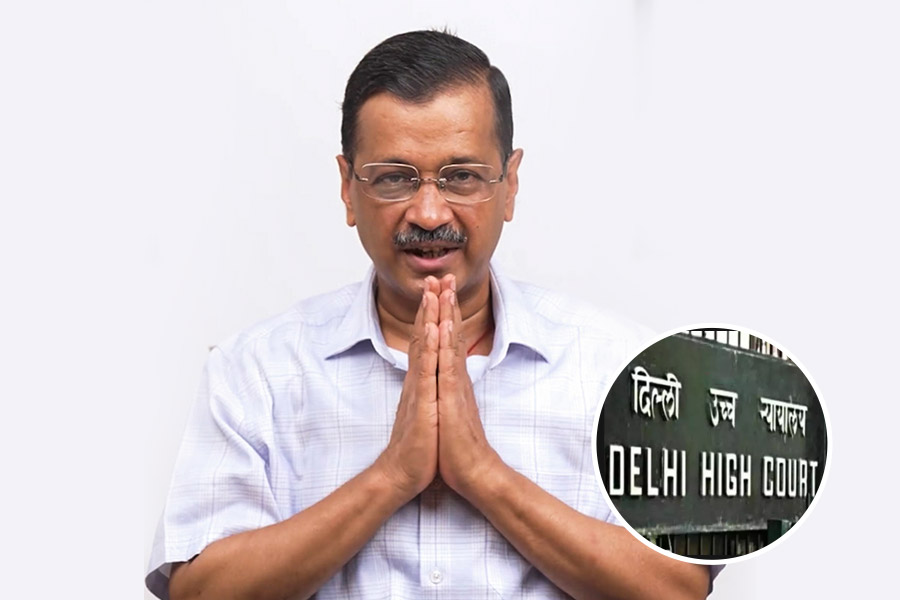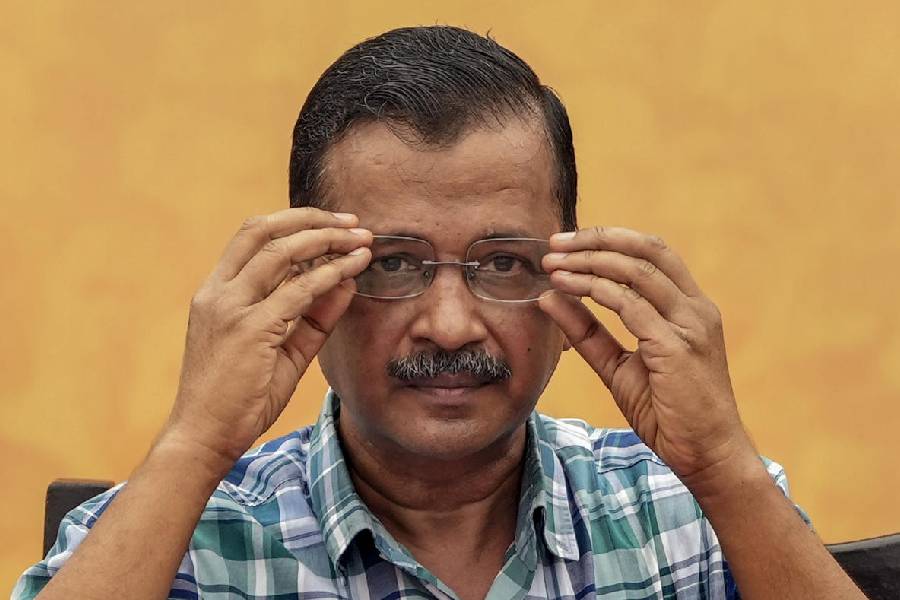In a blow to Delhi Chief Minister Arvind Kejriwal, the Delhi High Court on Tuesday stayed the trial court order granting him bail in the money laundering case arising from the alleged excise scam, holding that the lower court did not "appropriately appreciate" the material placed before it by the Enforcement Directorate.
A vacation bench of Justice Sudhir Kumar Jain said the ED's contentions assailing the bail order required serious consideration.
"The Vacation (trial) Judge while passing the Impugned Order did not appropriately appreciate the material/documents submitted on record and pleas taken by ED and the averments/grounds as raised in the petition under section 439(2) of the Code require serious consideration," it said.
"Accordingly, the present application is allowed and the operation of the Impugned Order is stayed," the court said.
The trial court, presided over by vacation judge Niyay Bindu, had granted bail to Kejriwal on June 20 and ordered his release on a personal bond of Rs 1 lakh.
The ED moved the high court the very next day and contended that the trial court's order was "perverse", "one-sided" and "wrong-sided" and it was passed without granting it adequate opportunity to argue the case.
In the 34-page order on the ED's application seeking a stay on the operation of the bail order, Justice Jain asserted that every court is under an obligation to give sufficient opportunity to the parties to present their respective case and, in the instant case as well, ED ought to have been given adequate opportunity to advance arguments on Kejriwal's bail application.
Justice Jain said the trial judge not only did not discuss and consider the arguments made by the anti-money laundering agency, including those advanced in the written submissions, it also did not discuss and record its view with respect to the "twin condition" requirement under section 45 of the Prevention of Money Laundering Act (PMLA) while granting bail.
Under section 45 of PMLA, an accused can be granted bail subject to the "twin conditions" that the court is prima facie satisfied that he is not guilty of such offence and the prosecutor has been given an opportunity to oppose the application for bail.
The issue regarding Kejriwal's vicarious liability as the head of the Aam Aadmi Party (AAM) also did not find any place in the bail order, the court added.
"The perusal of the Impugned Order is reflecting that the Vacation Judge has passed the Impugned Order without going through and appreciating the entire material brought on record by the rival parties which reflects perversity in Impugned Order. There is factual force in the arguments advanced by Sh. S. V. Raju (for ED) that the Vacation Judge has not passed the Impugned Order after due consideration of entire material on record," the court opined.
"Sh. S. V. Raju opened the arguments by referring to the para no. 16 of the Impugned Order wherein the Vacation Judge has observed that it is not possible to go through thousands of pages of documents filed by the respective parties but it is the duty of the court to work upon the matter whichever comes for consideration and passed the order in accordance with law," it said.
The court opined that the observations made by the trial court in the bail order were "uncalled for, unwarranted and out of context" and it should have followed "judicial discipline" by refraining from attributing malafide on the part of the ED in view of an earlier high court order supporting absence of any such intent.
At this stage, the court stated, it cannot be said that Kejriwal's arrest and remand was not in accordance with law and that his personal liberty was curtailed without following the procedure established by law.
It also said the interim bail granted to the chief minister by the Supreme Court was not on merit but in the background of the Lok Sabha general elections and therefore, his argument that he did not misuse the same is not of much help.
"There is also no force in argument advanced by Dr. Singhvi (CM's lawyer) that ... the respondent (Kejriwal) can be again remanded to judicial custody particularly in view of the fact that Impugned Order passed by the Vacation Judge is under serious challenge and grounds of challenge as raised by ED requires consideration of concerned court," it said.
On June 20, Special Judge Niyay Bindu, who sat as the vacation judge, granted bail to Kejriwal in the money laundering case, saying the ED failed to furnish direct evidence linking him to the proceeds of crime in the money laundering case.
On June 21, the high court had put in abeyance the operation of the bail order till the pronouncement on the issue of stay. It had also issued a notice to Kejriwal seeking his response to the ED's plea challenging the trial court's decision and listed it for hearing on July 10 before the roster bench.
Kejriwal approached the Supreme Court against the interim stay on his bail. On Monday, the Supreme Court fixed June 26 for hearing his plea against the stay, saying it would like to wait for the pronouncement of the high court order.
The excise policy was scrapped in 2022 after the Delhi lieutenant governor ordered a CBI probe into alleged irregularities and corruption involving its formulation and execution.
According to the CBI and ED, irregularities were committed while modifying the excise policy and undue favours extended to the licence holders.











